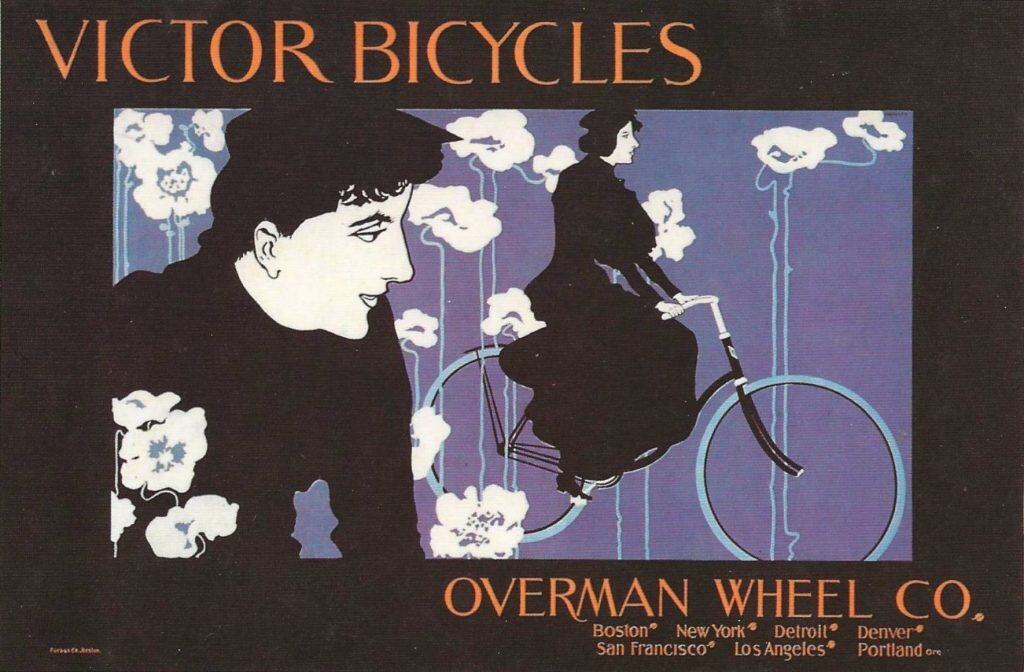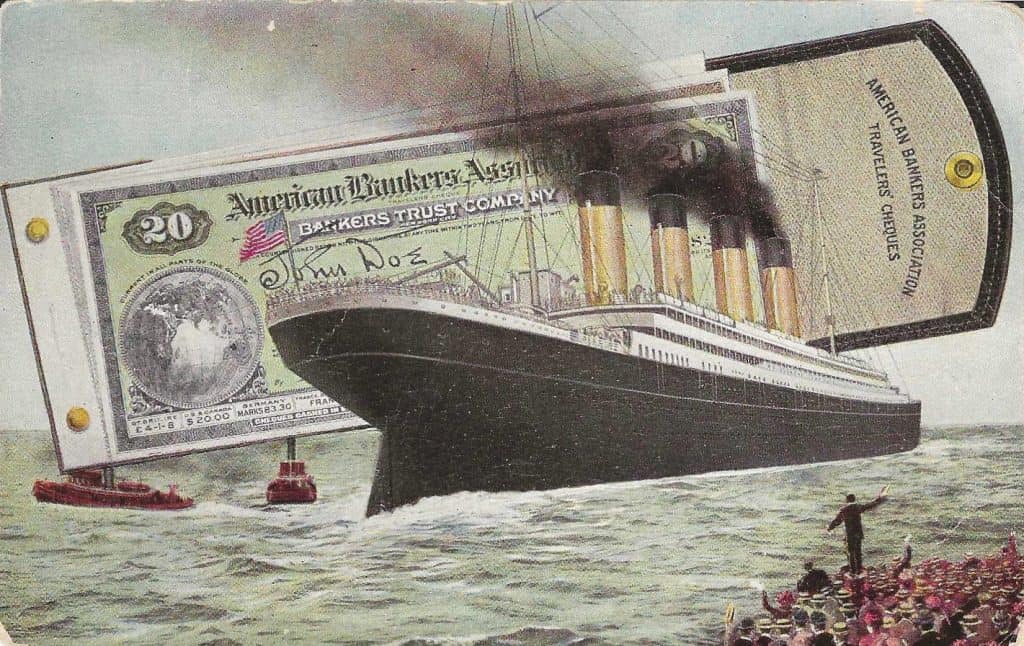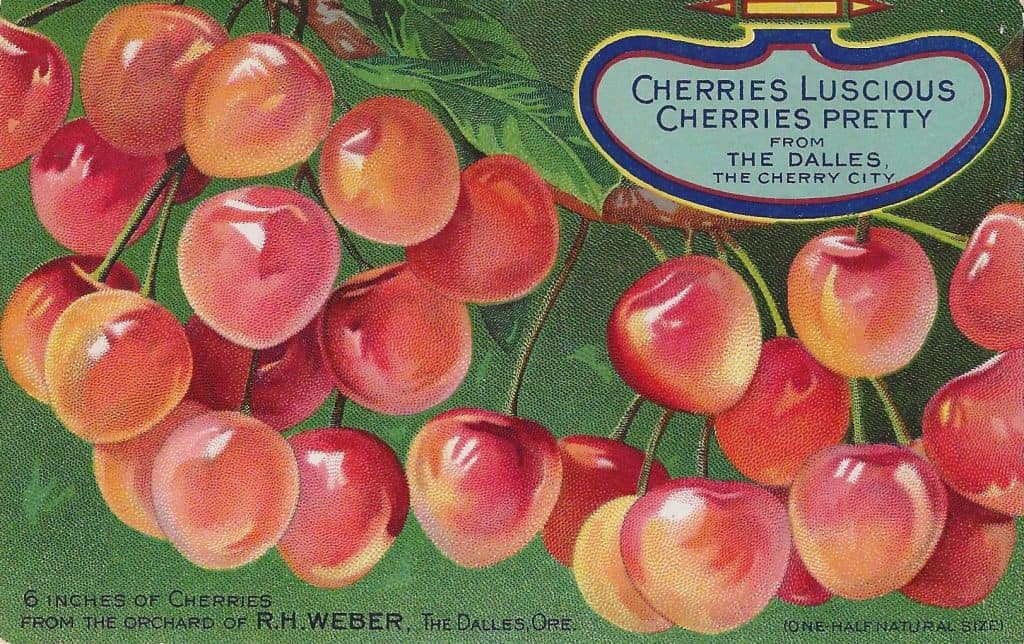Overman Wheel Company’s Victor Bicycles

In the late nineteenth century, Chicopee Falls, Massachusetts, became a major manufacturing center of bicycles. The town was the site of two bicycle factories: the Overman Wheel Company (1882 to about 1899) and the Spalding sporting goods Company.
Albert H. Overman was born in Normal, Illinois, in March of 1850. His first business endeavor was in Chicago and later in Connecticut and Massachusetts. In 1880 he visited Chicopee for the first time and decided the landscape better suited his industrial operation. He was in total opposition to the excessive manufacturing taxes levied by the state of Connecticut.
He moved his Victor brand bicycle production plant from Hartford, Connecticut, to Chicopee Falls in 1883. The Overman Company earned high profits with the surging popularity of the safety bicycle during a boom in the 1890s.
A “safety” is a type of bicycle that became popular beginning in the late 1880s as an alternative to the penny-farthing (also known as an “ordinary” or “high wheeler”). One reason for its popularity is that it was deemed suitable for women to ride.
At its height in 1894, Overman’s factory employed over 1,200 workers, but the boom did not last. Overman was a demanding individual who always insisted on full production. Supply soon exceeded demand and the price of bicycles dropped, and by 1901 the Overman firm was out of business.
The “safety” or “standard” is now the most common type of bicycle sold throughout the world. In the years after Overman’s retirement in 1900 his engineers and production workers continued their work and by 1903 had introduced safety cycles in six different sizes – all based on wheel diameter in inches. Sadly, Overman moved away and the new designs were sold to other manufacturers.
The American Bankers Association Travelers Cheque

RMS Lusitania passing the Devil’s Causeway on the coast of Ireland.
Traveler’s cheques were first issued on January 1, 1772 by the London Credit Exchange Company. The intended use was as a medium of exchange that would replace hard currency. The cheques were issued in the 19th century in various denominations in several major world currencies, including the United States Dollar, Canadian Dollar, the British Pound Sterling, the French Franc, the Swiss Franc, the German Mark, and the Italian Lira. Later, in the 20th century, issuing agents offered cheques in Japanese Yen, Chinese Yaun, and in 2002 traveler’s could purchase cheques in Euros. In the earliest years of use the cheques were meant for use in only 90 European cities, but that changed in 1874 when the Thomas Cook banking empire issued “circular notes” that introduced a third means of payment.
Cook’s notes became popular through the American Express company. They were redeemable for cash at the daily currency-exchange rate.
Then came credit cards!
Cherries Luscious, Cherries Pretty

In 1910, Richard H. Weber was 44 years old. He was born in Germany, immigrated to Illinois in 1881 and married Georgia McNeely after they met in a greengrocer’s shop around 1889. To fulfill a dream, Richard took his bride to Oregon and settled into a quiet life as a fruit grocer. By 1910 they had teenaged twins, a 12-year-old son, Richard, Jr., and a 10-year-old daughter, Edna.
Shortly after their trip west, Richard secured a mortgage on a small farm/orchard near the southern end The Dalles (pronounced DALZ), Oregon. It was interesting that the census worker recorded their house number as, “0” that was an abbreviation for “no permanent structure.”
The Dalles, formally the City of The Dalles and also called Dalles City, is the largest city in Wasco County and is the largest city in Oregon along the Columbia River. The only larger city is Portland, 75 miles west in the Columbia River gorge.
Weber, from the available public records, was a successful businessman and hardworking family man. No record of his death has been found. Georgia died in 1953.
Mr. Weber’s advertisement suggests that if you like cherries, you’ll love the one from his orchard.
The Dalles should not be confused with the Oregon city of Dallas, which is the seat of Polk County.